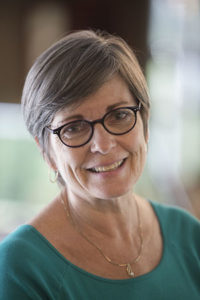Missionary Self-Care and Spirituality
Posted 08/02/2017 in Missiology Conversations

I love missionaries because they get the job done. Against all odds. They’re committed to a long obedience in the same direction at any cost as an expression of their love for God. Tell them the climate in their place of ministry will be 120℉ in the shade; they buy sunscreen. Tell them they will be isolated from all that is familiar; they learn about cross-cultural living. Tell them there are life-threatening diseases in their place of ministry; they get vaccinations and take prophylaxis. The people are resistant to Christianity? They amass a prayer team. Tell them they will need to raise their own support; it only doubles their commitment to the task.
But missionaries and their families are human. All these challenges take their toll. I have yet to meet a missionary who was not stretched beyond his or her limits. Bravado gradually gives way over time to humble perseverance, relying on God’s grace.
Fuller’s course “Missionary Self-Care and Spirituality” was offered for the first time in Winter Quarter 2017. Here are some of the key challenges that emerged from the students:
- Stress: Learning a new language and/or culture causes cognitive stress. Nothing is predictable. And the ministry is often 24/7 with little escape.
- Trauma and loss: Some come to mission life out of challenging family contexts. Some experience natural disasters, war, and other traumas on the mission field. When asked to list their losses, many of the students were surprised how long and troubling the list was.
- Loneliness: The promo literature makes missionary life sound like an exciting adventure and in some ways, it is. But there are also dull moments, days, and weeks. Especially at these times, missionaries may feel lonely, realizing they are not part of the host culture yet no longer fit in at home.
- Conflict in their team: Members of multicultural teams can offend one another without realizing it. Decision-making styles can be incompatible. And the high-stress lifestyle jeopardizes people’s relational skills.
Missionaries need a robust theological foundation for ministry. The belief that missionaries are entitled to extra doses of protection or blessing may not surface until a disaster strikes. Nothing can separate us from God’s love, but almost anything else can happen (Rom 8:38, 39). The belief that God loves me for all the good work I do for him can creep in unnoticed over the years. Resting solidly in God’s love is a skill we learn and relearn (Eph 2:8–9).

Missionaries need to understand the effect of stress on their physical, emotional, and spiritual health. In many missionary circles, working in season and out of season to respond at all times to those in need is a high value. Archibald Hart’s book Adrenaline and Stress (1995) helped many realize that a high-stress lifestyle is deadly. For every mountaintop of high stress, we need a valley of rest to let our bodies be restored. Anthony Bloom’s Beginning to Pray (1990) helped us stop the high-speed train inside and get quiet.
Missionaries need to understand the effects of trauma and loss and how to recover. Emotional pain does not go away by denying it. Until it is treated, it has a pernicious effect on all of life. A very basic means of healing is to be able to tell your story to someone who listens empathetically. Students practiced basic listening skills and had opportunity to tell their stories in their small group posts. They expressed their pain in drawings and other exercises. They wrote laments and brought their dashed hopes, anger, and despair to God himself. They let go of bitterness they had been holding on to, sometimes without realizing it. Little by little, healing began.
Missionaries often find themselves on the margins yearning for community, hemmed in by shame. What if people really knew what I think or how I feel? Telling and listening to each other’s stories not only brings healing, it also creates community—a strong bond of the fellowship of suffering. And this brings joy!
Given the high-stress, multicultural contexts missionaries work in, conflict is inevitable. Do we dare address it? There is no guarantee of a successful outcome. Avoiding it is not a solution either. We worked on improving our cross-cultural conflict resolution skills.
As the professor for this course, my heart broke as I learned of the pain the students faced. But I also was delighted to witness breakthroughs, see their creativity, and observe the community that formed. One student wished the class would not end, it was such a balm to her.

Harriet Hill is adjunct assistant professor of Bible translation and missionary self-care at Fuller. She is also director of the Trauma Healing Institute at American Bible Society. She worked with SIL for 32 years, first in Côte d’Ivoire, then in other parts of Africa, then globally in the areas of Bible translation and Scripture engagement.

